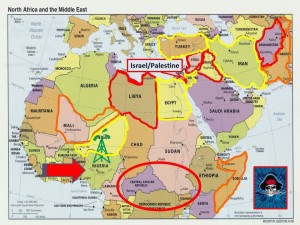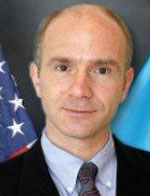
Mythological Basis of Foreign Policy
Is U.S. foreign policy based on myths?
Public pressure has helped push back against a bill in Congress that would have torn up the negotiated agreement with Iran by imposing yet more sanctions on the people of that country. The people of this country are not eager for another war, and have not accepted that sanctions lead away from war rather than into it.
But supporters and opponents of that bill tend to agree that Iran has a nuclear weapons program, and that this program must be stopped by one means or another. This underlying assumption is not supported by any evidence and never has been. We've heard it propounded for over thirty years, and the repetition has had its intended effect, but any evidence at all has always been lacking. A belief without evidence is a myth.
Iran has a nuclear energy program because the U.S. and European governments wanted Iran to have a nuclear energy program. The U.S. nuclear industry took out full-page ads in U.S. publications bragging about Iran's support for such an enlightened and progressive energy source. The U.S. was pushing for major expansion of Iran's nuclear program just before the Iranian revolution of 1979.
Since the Iranian revolution, the U.S. government has opposed Iran's nuclear energy program and misled the public about the existence of a nuclear weapons program in Iran. This story is well-told in Gareth Porter's new book, Manufactured Crisis: The Untold Story of the Iran Nuclear Scare, and by Porter is his upcoming interview this week on Talk Nation Radio.
The U.S. assisted Saddam Hussein's Iraq in a war against Iran in the 1980s, in which Iraq attacked Iran with chemical weapons. Iran's religious leaders had declared that chemical, biological, and nuclear weapons must not be used, even in retaliation. And they were not. Iran could have responded to Iraqi chemical attacks with chemical attacks of its own and chose not to.
Iran is committed to not using or possessing weapons of mass destruction. The results of inspections bear that out. Iran's willingness to put restrictions on its legal nuclear energy program — a willingness present both before and after sanctions — bears that out. Inspections should continue. All steps should be taken to move the world toward safe and sustainable energy sources. But can we drop the idea that Iran wants to nuke us?





